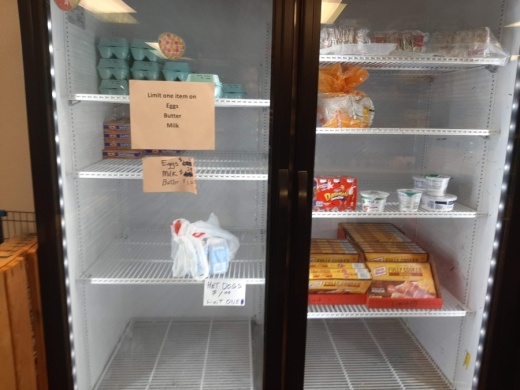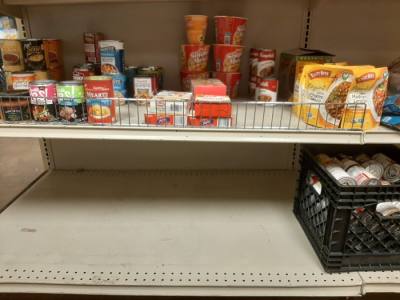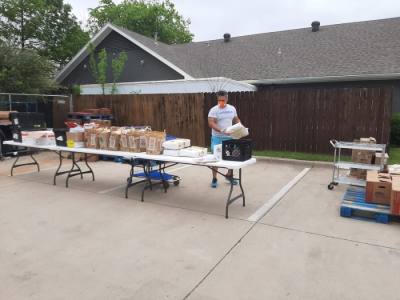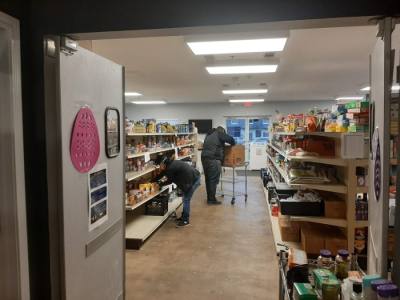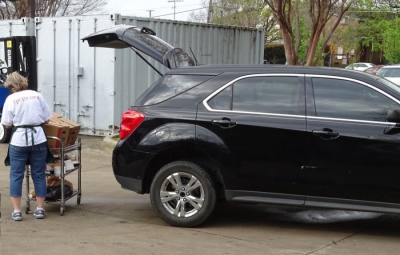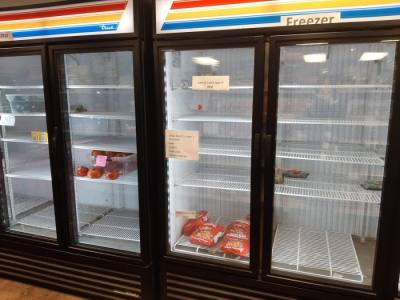On a typical Wednesday afternoon, the waiting areas of the Grapevine Relief and Community Exchange nonprofit group would see about 20 families, officials said. But on Wednesday, March 18, that number tripled despite the fact that the facility was only open for half the day.
“It’s starting to look pretty dire around here,” GRACE CEO Shonda Shaefer said. “[Our need] really did increase dramatically.”
In the wake of shutdowns and sparse grocery aisles with novel coronavirus concerns, GRACE is trying to meet the needs of three times more clients than normal, Schaefer said. Additionally, donations are down, worsening the issue and putting the future of GRACE in question, she said.
“The reality is that there's no funding coming in,” she said. “Contributions are down. People are freaking out, understandably.”
Calls to GRACE have not decreased since March, said Vanessa Lewis, marketing and communications manager for GRACE. People are coming to GRACE looking for assistance with their rent and utility payments, in addition to food, she said.
Foundations that normally support GRACE via revenue from the stock market have also slowed their contributions, Schaefer said. GRACE fundraising events have been canceled, and the GRACE resale stores and Donation Station have closed until further notice.
In normal circumstances, if GRACE is overloaded with clients, it is able to refer some of these to local church partners, Schaefer said. However, GRACE’s partner churches have closed to protect people, leaving GRACE to face the community's needs alone.
“These are people who are coming through and picking up peanut butter and pasta because there's not enough food in the house to serve all these kids home from school and all that,” she said.
While most people donate or organize food drives when GRACE faces shortages, that is simply not advisable for the time being, Schaefer said. Anything that requires people to get in the car and shop or interact with others only increases the risk of exposure to the disease. This has affected the way GRACE meets its clients now: having clients take a number and then wait in their cars for that number to be called. GRACE’s food pantry has also adopted a drive-thru service.
In addition to changing its food pantry system, GRACE's health clinic has also pivoted to implement over-the-phone health screenings and to provide telemedicine. Disinfection checks are routinely made at GRACE's facility throughout the day, officials said.
GRACE has issued a red alert to the community to encourage them to contribute to GRACE financially and help the relief organization meet the needs of people who had been able to make ends meet before but now find themselves unable to do so, Schaefer said.
Since GRACE issued its red alert message, people have been stepping up to assist the nonprofit organization, Lewis said.
"GRACE has been extremely touched by the hearts of the local community," she said in an email. "We have seen an increase in financial and in-kind food donations. Individuals, families and businesses are being creative and doing what they can to reach out and support GRACE and the families that we serve."
People can provide emergency support to the community in response to COVID-19 by visiting www.gracegrapevine.org and clicking on the “Donate Now” button. People can also go to Amazon and purchase specific items from the GRACE needs list and have them delivered to GRACE in Grapevine.
For those unable to contribute, Schaefer said she would ask them to pray.
“Pray for the families that we're serving. Pray for the staff and the volunteers who are making the sacrifice to be here and for the donors and for our community leaders who are going to help walk us through this,” she said. “We recognize that we're all in this together and that everybody is fearful.”




